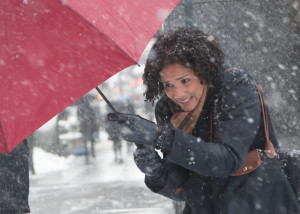
Responding to winter weather
 As winter weather visits the Northwest, being prepared is more important than ever.
As winter weather visits the Northwest, being prepared is more important than ever.
Resources for dialysis patients
- Be prepared in case you can’t leave home, must leave in a hurry or have some other change in your routine.
- You may need to start your 3-Day emergency diet for dialysis patients.
- Additional emergency resources on our website.
Find out about your dialysis center
- Call your clinic if you think there’s a chance it might be closed. Go to the Locations page of our website to find the phone number.
- For emergency rescheduling, call your dialysis unit.
Missing even one dialysis treatment can create serious health challenges. We are prepared to provide dialysis for you even when weather is bad.
Resources to learn about local road and transit conditions
- Seattle Department of Transportation Winter Weather website
- Live streaming cameras with views of Seattle streets
- King County Metro Transit Alerts and Updates
Emergency Kit Basics
These items are considered critical to have in any family’s emergency kit — additional items are up to you.
Water
- 1 gallon per person per day
- 1/2 for cooking/sanitation
Food
- Store food that’s high in calories and has a long shelf-life
- Consider meal replacement bars, canned foods and dry food items that don’t need to be cooked to eat
- Make sure to include food you like to eat
Light Source
- Avoid candles to minimize fire risk
- Include safe light options like a battery-powered flashlight with extra batteries or a hand-crank flashlight
- Glow sticks are long-lasting, inexpensive and fit easily into any size bag
Clothing
- Include at least one change of clothing
- If you get wet, it’s important that you dry off as soon as possible because moisture pulls heat away from your body (wool or synthetic clothing that wicks moisture away from your body is recommended)
- To stay warm and dry, you can also pack extra blankets, a tarp or rain gear
First Aid
- Include items for basic care like adhesive bandages, antiseptic wipes, gauze pads, scissors, tweezers and pain-relief medication
- Make sure to include medications and equipment specific to your needs
Consider having emergency kits for your home, car, workplace and school. It may be wise for you to have a smaller kit in case you need to quickly leave your home.
Additional Resources
